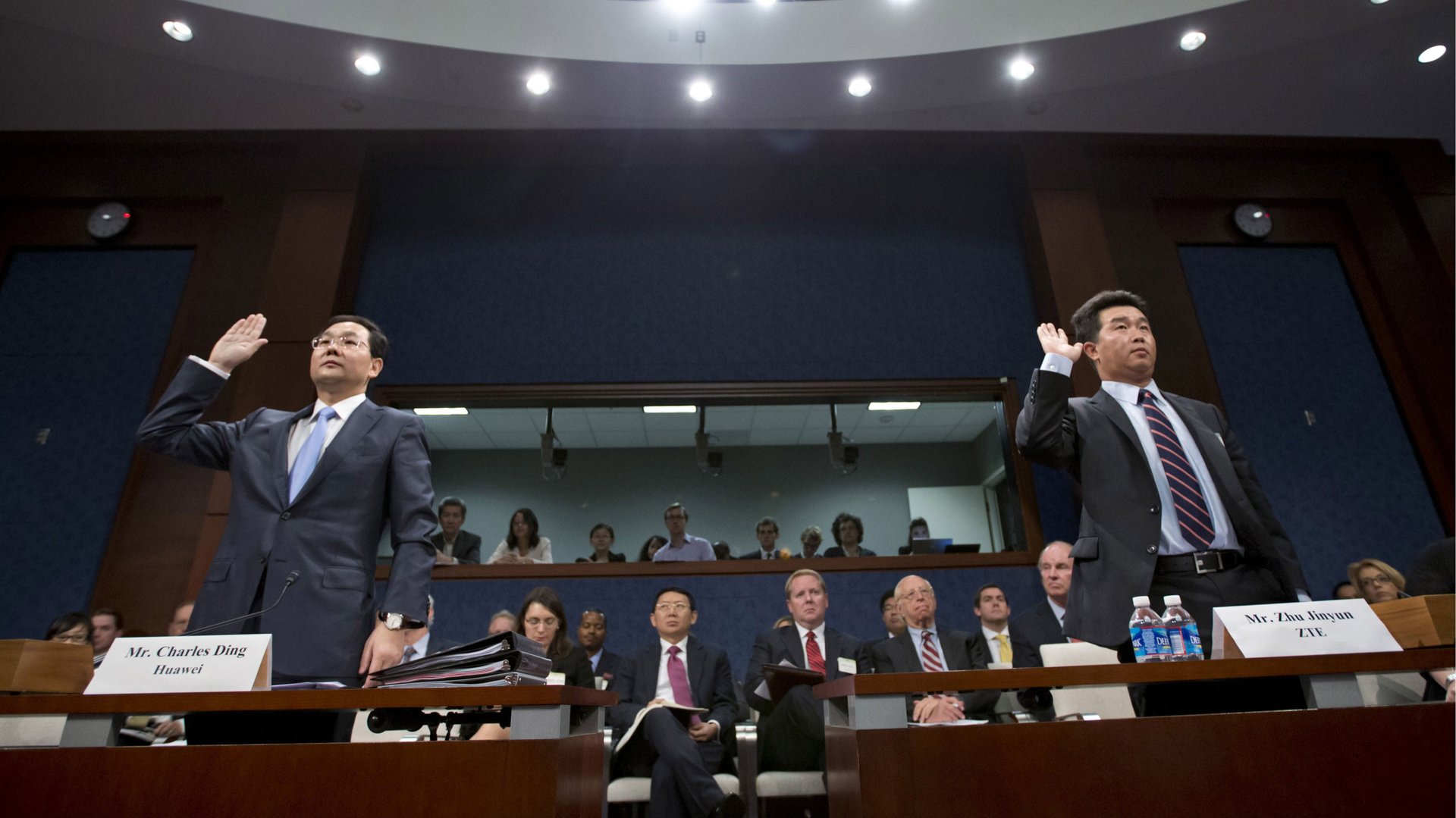Chinese telecom giant Huawei tries on transparency for size to combat black sheep reputation
China’s Huawei is vying with Swedish equipment maker Ericsson for the title of largest telecom equipment vendor in the world. But one big drag on its ambitions is suspicion by governments in the US and elsewhere that its gear could be used for Chinese espionage, which has effectively blocked Huawei from some of the most lucrative markets.


China’s Huawei is vying with Swedish equipment maker Ericsson for the title of largest telecom equipment vendor in the world. But one big drag on its ambitions is suspicion by governments in the US and elsewhere that its gear could be used for Chinese espionage, which has effectively blocked Huawei from some of the most lucrative markets.
In October, a US congressional committee recommended that both government offices and private companies stop using Huawei products. Though they offered no evidence of actual espionage (despite a full year’s worth of interviews, and data analysis), the report’s authors expressed concern over the company’s lack of transparency, its potential connections to the Chinese government, and its founder’s past as a Chinese military officer.
Huawei now says it’s prepared to provide greater transparency, in the hopes of undercutting such concerns. CFO Cathy Meng, who is the daughter of its founder, on Jan. 21 revealed some details about who actually owns Huawei—one of the questions the American congressional committee raised back in October. Meng explained that her father, Mr. Ren, holds 1.4% of Huawei, and that the rest of the company is owned by about 65,000 employees. Meng also said that Huawei would, in the future, start disclosing board members’ shareholdings and more information about the company’s shareholding scheme.
Meng released earnings and projections, which is not required for private companies. According to Huawei’s press release, last year’s revenue jumped 8%, to 220.2 billion Renmibi (which happens to be well below the company’s own expectations of a 15-20% increase, perhaps because of lagging sales in foreign markets), and profit grew 33%, to 15.4 billion Renmibi. Meng also said KPMG’s 2012 audit of the company would be included in the company’s annual report, to be released in April.
Other governments have followed the US Congress in kicking Huawei out of their own borders. In October, Canada announced a “national security exception” to bar Huawei from working on its national network. In November, the Indian government set up a framework to deal with “potential threats” from Chinese telecom equipment, and just this week announced that it would only accept local bids for the construction of its national fiber optic network.
Meng’s disclosures, and her promises to make Huawei “more open and transparent with stakeholders” represent a crucial move for the company, which derives 66% of its revenue from outside China, even during a year it saw itself blocked from some foreign markets across the globe. With 35% of Huawei’s revenue from Europe, the Middle East, and Africa, and 15% from the Americas, Huawei is a multinational company that cannot survive without global demand.
Back in October, facing a grilling from American congressmen, a Huawei official protested that Huawei was a private company with customer-oriented goals, and that bowing to Chinese government pressure would be a suicidal move: “Huawei has not and will not jeopardize our global commercial success nor the integrity of our customers’ networks for any third party, government or otherwise.”
The same day Meng made her comments, Huawei responded via Twitter to a user in Sao Paulo, Brazil, who had tweeted a few days ago that she was having a tough time downloading a driver from Huawei’s website. @HuaweiPress promised her they would “look into it.”